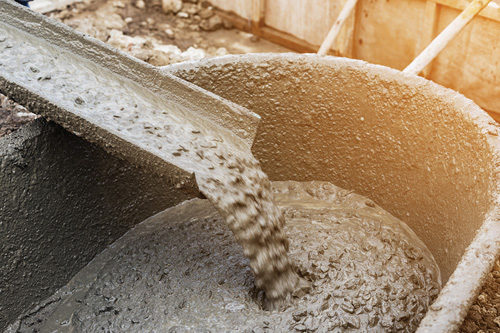Working safely with cement

From homes and workplaces to sidewalks and playgrounds, cement is everywhere. According to the Portland Cement Association, cement is one of the safest building materials available – when precautions are observed.
Concrete 101
Portland cement is the basic ingredient of concrete, PCA states, and concrete is made when Portland cement creates a paste with water, causing sand and rock to harden.
Commonly used materials to manufacture Portland cement include limestone, shells, and chalk or marl combined with shale, clay, slate, blast furnace slag, silica sand and iron ore. Because Portland cement contains abrasive materials, it’s also rough on bare skin.
In addition, drying Portland cement is hygroscopic, meaning it absorbs water. Because of this, fresh concrete shouldn’t come in contact with bare skin because “saturated clothing can transmit alkaline or hygroscopic effects to the skin.”
It’s important to take precautions when working with fresh concrete to avoid skin problems or chemical burns, PCA states, noting that “prolonged contact between fresh concrete and skin surfaces, eyes and clothing may result in burns that are quite severe, including third-degree burns.”
Protect yourself
When working with Portland cement, wear waterproof gloves, long-sleeved shirts and pants, and rubber boots high enough that concrete cannot get into them, PCA states. The association also recommends that workers wear eye protection because of the risk of blowing dust and spattering concrete.
Concrete and concrete-making materials can be heavy, so workers need to be careful. When concrete is deposited, push it with a shovel – don’t lift it – into its final position.
Post a comment to this article
Safety+Health welcomes comments that promote respectful dialogue. Please stay on topic. Comments that contain personal attacks, profanity or abusive language – or those aggressively promoting products or services – will be removed. We reserve the right to determine which comments violate our comment policy. (Anonymous comments are welcome; merely skip the “name” field in the comment box. An email address is required but will not be included with your comment.)

